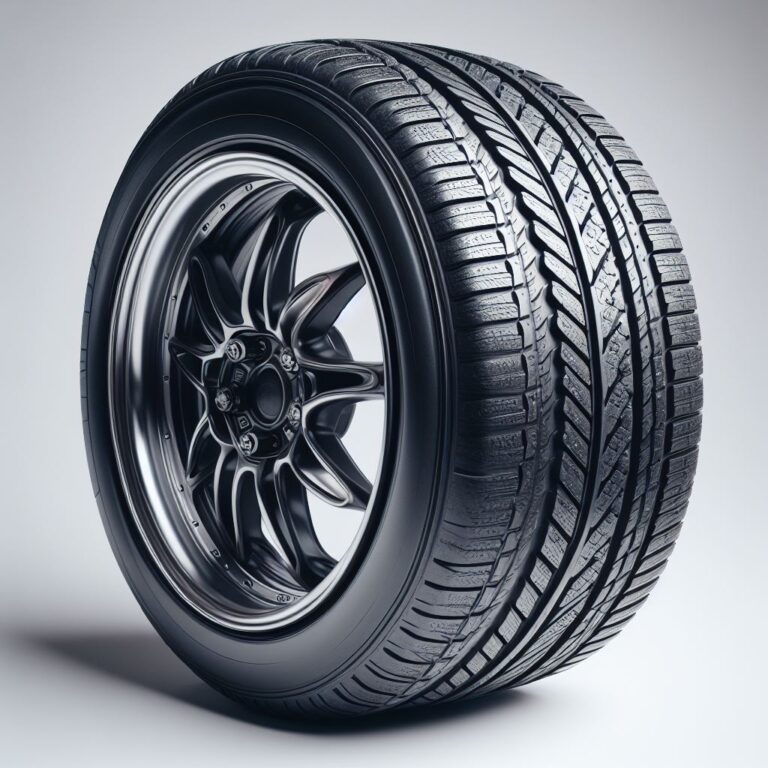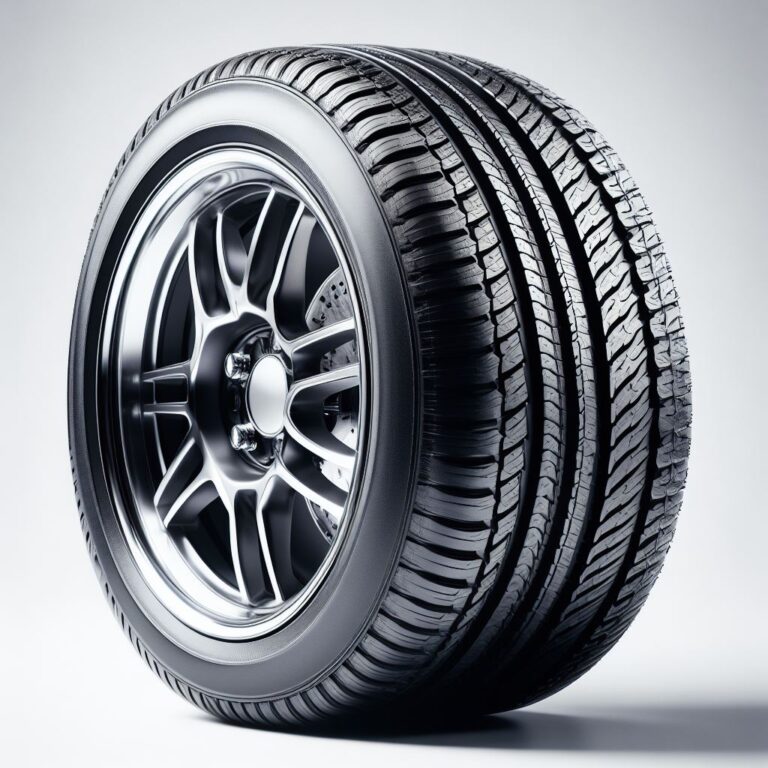How To Choose Michelin CrossClimate SUV
- How To Choose Arctic Claw WXI - January 20, 2024
- How To Choose BFGoodrich Advantage Control All Season - January 20, 2024
- How To Choose BFGoodrich Winter T/A KSI - January 20, 2024

Understanding the Michelin CrossClimate SUV: Exploring the features and benefits
The Michelin CrossClimate SUV is a tire designed specifically for SUVs, offering a range of features and benefits that enhance the overall driving experience. One of the key features of the CrossClimate SUV is its all-weather performance capability. This tire is designed to provide excellent traction and handling in both dry and wet conditions, making it suitable for a variety of weather conditions. Whether you’re driving on a sunny day or encountering rain showers, the CrossClimate SUV ensures a safe and confident driving experience.
In addition to its all-weather performance, the Michelin CrossClimate SUV also offers exceptional durability and longevity. The tire is built with a special tread compound that resists wear and tear, allowing it to maintain its performance characteristics even after many miles of driving. This durability not only ensures a longer lifespan for the tire, but also provides cost savings for SUV owners who don’t need to replace their tires as often. Furthermore, the CrossClimate SUV is designed to provide a comfortable and quiet ride, thanks to its noise reduction features. This means that you can enjoy a smooth and tranquil driving experience, regardless of the road conditions.
Assessing your SUV’s specific needs: Identifying the right tire size and load capacity
When it comes to assessing your SUV’s specific needs, one important factor to consider is identifying the right tire size. The size of your tires plays a crucial role in the overall performance and safety of your vehicle. It affects various aspects such as handling, traction, and fuel efficiency. To determine the appropriate tire size for your SUV, you should refer to your vehicle’s owner’s manual or consult a professional tire expert. They can guide you in selecting the correct tire size that aligns with your SUV’s specifications and ensures optimal performance on the road.
In addition to tire size, another critical consideration is identifying the appropriate load capacity for your SUV’s tires. Load capacity refers to the maximum weight that a tire can safely carry. It is essential to choose tires with a load capacity that matches or exceeds the weight of your vehicle and any additional cargo or passengers that you often carry. Overloading your tires can lead to accelerated wear, reduced traction, and an increased risk of tire failure. Therefore, understanding your SUV’s load capacity and selecting tires accordingly is crucial for maintaining safety and enhancing the longevity of your tires.
Weather conditions and driving habits: Evaluating the climate and terrain you frequently encounter
When considering the tires for your SUV, it is crucial to evaluate the climate and terrain you commonly encounter during your daily commute or recreational trips. Different weather conditions demand specific tire characteristics to ensure optimum performance and safety. Whether you live in an area with heavy rainfall or face extreme winter conditions, selecting tires suitable for your environment is essential. Similarly, the terrain you frequently navigate, be it rugged off-road trails or smooth city streets, also dictates the kind of tires that will best meet your driving needs. By carefully assessing these factors, you can make an informed decision and choose tires that will provide the necessary traction and handling capabilities for your specific climate and terrain.
Understanding your driving habits is equally important when evaluating weather conditions and selecting tires. Are you a frequent traveler, driving long distances regularly? Or do you primarily use your SUV for local commuting? Your driving habits will impact the wear and tear on your tires and the overall longevity you can expect. Additionally, consider your driving style—do you typically drive more aggressively or opt for a more relaxed approach? All these factors influence the tire’s performance and lifespan, making it crucial to choose tires that are compatible with your driving habits. The right selection will not only enhance your driving experience but also ensure safety and cost-effectiveness in the long run.
Performance and handling: Examining the tire’s traction, braking, and cornering capabilities
The performance and handling of a tire play a crucial role in ensuring safe and smooth driving experiences. Traction is an essential aspect to consider, as it impacts the tire’s ability to grip the road surface firmly. A tire with good traction will provide superior control and stability, especially during acceleration and sudden braking. It helps prevent wheel spin and skidding, making it easier to navigate different terrains and road conditions with confidence.
Braking capabilities are equally important when evaluating a tire’s performance. A tire that offers efficient braking performance can significantly reduce the stopping distance, enhancing safety on the road. It ensures a quick response when you apply the brakes, allowing you to maintain control and avoid potential accidents. Cornering capabilities, on the other hand, determine how well the tire handles turns and curves. A tire with excellent cornering abilities enables precise steering response, providing a comfortable and controlled driving experience.
Longevity and durability: Considering the tire’s lifespan and resistance to wear and tear
One crucial factor to consider when choosing tires for your SUV is the longevity and durability they offer. After all, you want a tire that can withstand the demands of daily use and potentially challenging road conditions. The lifespan of a tire can vary depending on various factors such as driving habits, road conditions, and maintenance. It is essential to opt for a tire that is known for its durability and resistance to wear and tear, ensuring that you get the most out of your investment.
When assessing the longevity and durability of a tire, it is important to consider its construction and materials used. High-quality tires are often designed with innovative technologies and advanced materials that enhance their resistance to wear and tear. These tires are typically constructed with durable rubber compounds and reinforced with strong internal structures, allowing them to withstand rough roads, potholes, and other potentially damaging elements. By opting for tires with excellent longevity and durability, you can enjoy extended tread life and minimize the need for frequent replacements, which can save you money and provide peace of mind on the road.
Noise and comfort: Analyzing the tire’s noise reduction and ride comfort features
When it comes to assessing tires for noise reduction and ride comfort features, the performance of the Michelin CrossClimate SUV stands out. The tire is engineered with advanced technology to minimize road noise, providing a smooth and quiet ride experience for SUV drivers. Whether you’re cruising on the highway or navigating through urban streets, the CrossClimate SUV tires excel in reducing noise levels, making for a more enjoyable driving experience.
In addition to noise reduction, the CrossClimate SUV tires prioritize ride comfort. They are designed with a special tread pattern and unique rubber compounds that absorb impact and vibrations, ensuring a comfortable and stable ride. This means that even on bumpy roads or uneven surfaces, the CrossClimate SUV tires provide a cushioned feel and maintain excellent grip, enhancing overall comfort and driving confidence. SUV owners can enjoy a smooth and luxurious ride, thanks to the tire’s emphasis on both noise reduction and ride comfort features.
Wet weather performance: Evaluating the tire’s performance on wet roads and during heavy rain
When it comes to driving in wet weather conditions, it is crucial to have tires that can handle the challenges effectively. The performance of a tire on wet roads and during heavy rain is essential for maintaining control and ensuring safety on the road. The Michelin CrossClimate SUV tire is designed to provide excellent wet weather performance, offering drivers confidence and peace of mind even in the most challenging weather conditions. With its advanced tread design and unique compound, this tire is engineered to deliver exceptional grip, traction, and stability on wet road surfaces. Whether you encounter light rain or heavy downpours, the Michelin CrossClimate SUV tire is built to keep you safe and in control.
One of the key features that contribute to the exceptional wet weather performance of the Michelin CrossClimate SUV tire is its innovative tread pattern. This tire incorporates a combination of wide grooves and lateral sipes, which work together to effectively channel water away from the tire’s contact patch. By preventing water build-up, the tire maintains optimal contact with the road surface, reducing the risk of hydroplaning. Additionally, the unique compound used in the tire’s construction ensures excellent traction on wet roads, enhancing both braking and cornering capabilities. With the Michelin CrossClimate SUV tire, drivers can confidently navigate wet roads and heavy rain, knowing that their tires are up to the task.
Snow and ice traction: Assessing the tire’s ability to handle winter conditions and icy surfaces
Snow and ice traction is a crucial factor to consider when choosing tires for your SUV. The ability of a tire to provide adequate grip on slippery surfaces can greatly enhance your safety and confidence while driving in winter conditions. Michelin CrossClimate SUV tires are known for their exceptional performance in snowy and icy environments. Their specially designed tread pattern and unique rubber compounds allow them to maintain optimal traction even on slippery roads. Whether you’re navigating through slushy city streets or conquering steep mountain passes, these tires provide excellent stability and control, ensuring a smooth and secure driving experience.
In addition to their impressive traction, Michelin CrossClimate SUV tires also offer enhanced handling on icy surfaces. The tire’s advanced siping technology and micro-zigzag grooves increase the number of biting edges, allowing for better grip and improved braking performance. This ensures that you can confidently navigate icy roads and remain in control of your vehicle, even in challenging weather conditions. With Michelin CrossClimate SUV tires, you can enjoy peace of mind knowing that your SUV is equipped with tires that are specifically designed to handle the demands of winter driving.
Fuel efficiency and eco-friendliness: Understanding the tire’s impact on your SUV’s fuel consumption and environmental footprint
When it comes to fuel efficiency and eco-friendliness, the choice of tires for your SUV can have a significant impact. The right tires can help reduce fuel consumption, resulting in cost savings and decreased carbon emissions. Additionally, eco-friendly tires are designed to minimize their environmental footprint by using sustainable materials and employing innovative manufacturing processes. By understanding the tire’s impact on your vehicle’s fuel consumption and environmental footprint, you can make a conscious decision that aligns with your sustainability goals.
One of the key factors that affect fuel efficiency is the tire’s rolling resistance. Tires with lower rolling resistance require less energy to move, leading to improved fuel efficiency. Many manufacturers, including Michelin, have developed specialized compounds and tread designs to reduce rolling resistance without compromising on other essential performance aspects. By opting for tires with low rolling resistance, you can not only save on fuel costs but also contribute to a greener, more sustainable future.
Expert reviews and customer feedback: Seeking professional opinions and user experiences to make an informed decision.
When considering the purchase of new tires for your SUV, seeking expert reviews and customer feedback can provide valuable insights to help you make an informed decision. Expert reviews offer professional opinions and in-depth analysis of tire performance, giving you an objective assessment of the product. These reviews often evaluate key factors such as traction, braking, cornering capabilities, and overall handling on various terrains and weather conditions. Expert reviewers also consider tire longevity, durability, noise reduction, and ride comfort, providing a comprehensive overview of the tire’s features and benefits.
Customer feedback, on the other hand, offers real-world experiences from SUV owners who have already used the tires you are considering. Hearing directly from fellow consumers can give you practical insights into how the tires perform in everyday driving situations. Customers often share their experiences with wet weather performance, snow and ice traction, fuel efficiency, and other aspects that may be relevant to your specific needs. By examining a variety of expert opinions and customer feedback, you can gather a well-rounded understanding of the tire’s strengths and weaknesses, helping you make an informed decision that best suits your SUV and driving preferences.
What is the Michelin CrossClimate SUV tire?
The Michelin CrossClimate SUV tire is a specific type of tire designed for SUVs. It offers a unique combination of features suitable for various weather conditions and driving needs.
How do I determine the right tire size and load capacity for my SUV?
To identify the correct tire size and load capacity for your SUV, refer to your vehicle’s owner’s manual or consult with a tire professional. They will consider your vehicle’s specifications and recommend the appropriate options.
Why is it important to consider weather conditions and driving habits when choosing tires?
Weather conditions and driving habits play a crucial role in determining the performance and safety of your tires. Different tires are designed to handle specific climate and terrain, so it’s important to select tires that suit the conditions you frequently encounter.
What aspects of performance and handling should I consider when evaluating tires?
When examining performance and handling, consider factors like traction, braking, and cornering capabilities. These aspects directly affect how well the tire grips the road and responds to various driving situations.
How can I determine the longevity and durability of a tire?
The longevity and durability of a tire can be evaluated by considering its lifespan and resistance to wear and tear. Reviews, customer feedback, and manufacturer specifications can provide insights into a tire’s durability.
What should I look for in terms of noise reduction and ride comfort features?
When analyzing noise and comfort, focus on features that reduce tire noise and provide a smooth and comfortable ride. Tires with advanced noise reduction technologies and enhanced comfort features can significantly improve your driving experience.
How can I assess the wet weather performance of a tire?
Evaluating the wet weather performance involves considering how well the tire performs on wet roads and during heavy rain. Look for features like enhanced traction, improved water evacuation capabilities, and reduced risk of hydroplaning.
What factors affect a tire’s snow and ice traction?
The ability to handle winter conditions and icy surfaces depends on various factors like tread design, rubber compound, and the presence of sipes and biting edges. Tires specifically designed for snow and ice traction will have features tailored for these conditions.
How does a tire impact fuel efficiency and eco-friendliness?
Tires can affect your SUV’s fuel consumption and environmental footprint. Tires with low rolling resistance can improve fuel efficiency, while eco-friendly options may incorporate sustainable materials or manufacturing processes.
How can expert reviews and customer feedback help me make an informed decision?
Expert reviews and customer feedback provide valuable insights into a tire’s performance, durability, and overall satisfaction. By considering both professional opinions and user experiences, you can gather a well-rounded understanding of the tire before making a decision.





